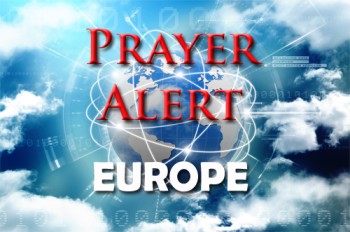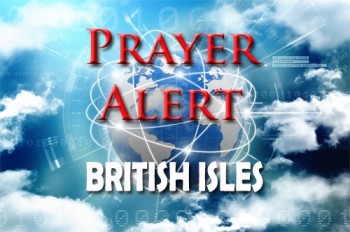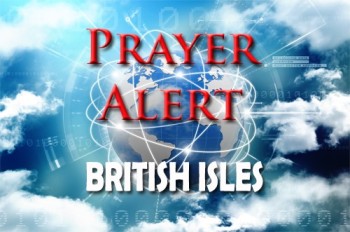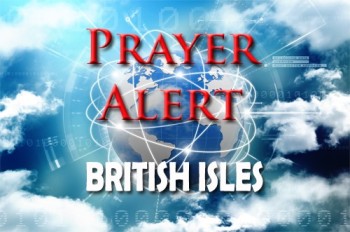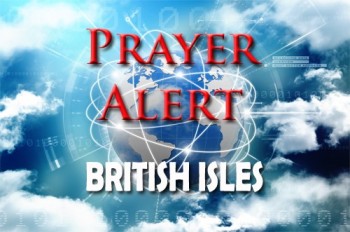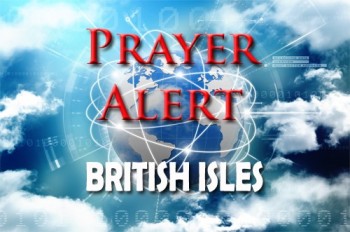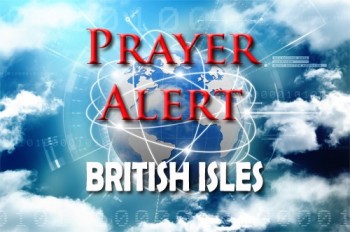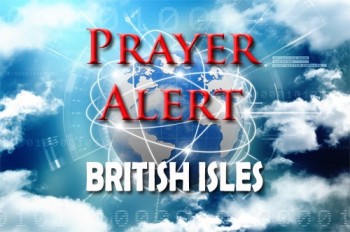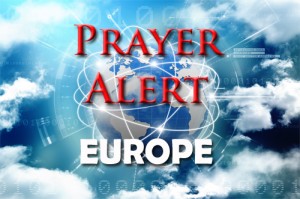Displaying items by tag: trade
France seeks delay to EU-Mercosur trade agreement
France is seeking to delay a vote to ratify the long-negotiated EU–Mercosur trade agreement, arguing it threatens farmers and risks inflaming domestic unrest. The deal with Argentina, Brazil, Paraguay, and Uruguay was concluded a year ago after talks dating back to 1999. Supporters say it would open South American markets to European cars, machinery, and wines at a time of US tariffs and rising Chinese competition. Opponents, led by France, warn that cheaper agricultural imports produced under looser standards could undercut European farmers and encourage environmental harm. Protests are intensifying: as many as 10,000 farmers are expected to descend on Brussels as leaders meet. Although the European Commission has proposed safeguards, Paris calls them insufficient and is urging a postponement to secure stronger protections. The timing of the vote coincides with efforts by Sebastien Lecornu’s minority government to secure parliamentary approval for a budget, including suspending Emmanuel Macron’s controversial pension reform, before the end of 2025. Ursula von der Leyen is due to travel to Brazil on Monday next week to sign the agreement and create the world’s largest free-trade area.
Taoiseach praises UK-Irish 'reset' ahead of joint summit
Irish Taoiseach Micheál Martin met Keir Starmer in Liverpool ahead of a historic UK-Irish summit. The event brings together cabinet members from both governments to strengthen ties in trade, energy, and security. Discussions will focus on economic growth, investment, and cooperation in renewable energy, technology, AI, and security. A new data-sharing agreement will be announced to boost offshore energy production. Additionally, Ireland will unveil £185.5 million in investments in the UK, expected to create over 2,500 jobs. The summit is taking place amid heightened security concerns in Europe. Martin praised Starmer’s leadership, emphasising the importance of peace and international cooperation. Starmer expressed his commitment to deepening UK-Irish relations, stating that previous ties had not reached their full potential. This meeting marks a new era of collaboration, reinforcing economic and diplomatic ties between the two nations. The summit concludes before Martin attends a European Council meeting in Brussels.
British businesses stop shipping to Northern Ireland
Small British businesses are halting shipments to Northern Ireland and the EU due to new EU customs rules and product safety regulations. These regulations require complex compliance steps, including detailed paperwork, batch numbering, and the designation of an EU or Northern Ireland-based 'authorised representative’. Many small firms, lacking resources to navigate these requirements, have chosen to cease trade rather than risk penalties. Entrepreneurs are expressing frustration over the lack of timely government communication and support. Business owners learned about the changes through social media rather than official channels, exacerbating the challenge during the busy Christmas season. While the Government claims to prioritise small businesses, the lack of tailored guidance leaves many struggling. Small businesses fear these changes favour larger corporations, potentially widening economic disparities.
Australia / New Zealand: mixed feelings as China’s PM visits
A visit to New Zealand and Australia by China's PM Li Qiang, starting on 13 June, will be marked by regional security concerns overshadowing trade ties. China is Australia's largest trading partner, particularly for iron ore, while New Zealand's significant trade involves milk and agriculture. NZ prime minister Christopher Luxon views the visit as an opportunity for business deals, but acknowledges the need to address differences, especially since his country has taken a tougher stance on China in recent months due to security concerns. In Australia, Li will visit Adelaide, engaging in ‘panda diplomacy‘ and meeting wine exporters to ease political tensions which had previously led to a suspension in their exports. A recent poll shows significant public mistrust in Australia towards China, with many viewing Beijing as a security threat. Despite these concerns, prime minister Anthony Albanese believes Li's visit shows that ties had stabilised, even as the two nations compete for influence in the Pacific and defence force encounters are tense.
Wilko - rescue deal or redundancies?
Wilko’s 400 stores are expected to close within weeks with 12,500 redundancies unless a buyout is secured. Pray for the 12,500 families living with fear of being out of work. Wilko’s assets were valued at £41m and the stock is likely to be worth tens of millions of pounds. The stores could be bought by rival bargain retailers like Poundland, Home Bargains, Primark, and B&M, who would rebrand them, possibly without retaining existing staff. The GMB union, which represents thousands of Wilko staff, said it would be ‘a disgrace’ if bids that could save jobs were disregarded. 12,500 jobs cannot be sacrificed for a few pence in the pound for creditors. Viable bids that protect jobs must be prioritised. M2 Capital’s bid to keep the entire Wilko chain trading fell through on 31 August. Job losses are feared.
US-UK special relationship: Biden and Johnson?
Boris Johnson and Joe Biden met on 10 June. Joe Biden has Irish roots, and many believe Britain should not underestimate the strength of his feelings against tinkering with the Northern Ireland Protocol if it puts the Good Friday agreement in jeopardy. Boris Johnson wants to ‘tinker’, putting the agreement at risk. He was seen by many Americans as Britain's equivalent of Donald Trump, and indeed he was lavish in his praise of the former president. But British PMs need to get on with whoever is America’s president. Boris, from a privileged background, needs to get on with Joe, who is from a poor working-class background. The one thing the two men do have in common is that they both are Catholics: one is a practising believer, the other needs more practice.
UK and EU fighting over sausages
The UK and the EU are in disagreement over the Northern Ireland Protocol; one sticking point is the export of sausages from the UK. Maros Sefcovic, the European Commission vice-president, says there have been ‘numerous and fundamental gaps’ in the UK's implementation of the trade deal and the EU will act ‘firmly’ if the UK does not agree on deadlines for complying with its obligations. Environment secretary George Eustice claimed the Northern Ireland Protocol, and the way the EU wants to implement it, make it impossible for UK producers to sell British sausages to Northern Ireland. Boris Johnson's spokesman said there was ‘no case whatsoever’ for blocking the sale of chilled meats. The UK has also accused the EU of failing to engage with its own proposals, especially with the issues pertaining to people in Northern Ireland.
Praying for UK trade
The following is based on prayers by Suzanne Ferrett. God is changing the face of the Church and resetting society values. Pray that across our nation, every shift and change which is taking place will move us closer to the way He created us to live, aligning the lives of individuals, families, and communities with His heart, His values and the plans within His word. For those changes to last beyond the limits of our current lockdown, forming a new foundation on which society will rebuild. God is re-aligning this nation. Pray for righteousness, justice, honesty, truth, mercy, godly discernment, and divine wisdom to be the foundations upon which this nation will build. Pray also for the Lordship and Sovereign will of God over all trading negotiations taking place, so that this nation will be aligned and connected for trade according to God’s design. May the complexities of new arrangements be understood and smoothed.
Brexit: possible ‘no deal on trade’
On 22 July transport secretary Grant Shapps said that the United Kingdom wants a Brexit free trade deal with the EU, but is prepared for a no deal. A spokesman for Boris Johnson said later that day that Britain remains committed to agreeing the outlines of a balanced trade agreement with the EU, but significant differences between the two sides remain. Talks on a future relationship, which are now in their fifth round, have all but stalled. Some companies fear that there will be disruption at the end of the year if the two fail to secure a trade deal. Mr Johnson’s spokesman said, ‘We will make sure that we’re prepared for all possible scenarios.’
Ireland: proposed boycott of Israel goods
The Irish Senate has voted to approve a proposal to criminalise doing business with Jews in settlement areas, parts of Jerusalem and the Golan Heights - areas that came under Israel’s control after the 1967 Six-Day War. After the vote the Irish ambassador was summoned to a meeting at the Israeli foreign ministry’s office. If Eire officially approves the proposal, it will become the first country in the European Union to criminalise import of goods from Israel. The proposal’s initiator, Senator Frances Black, slammed Israeli settlements as ‘war crimes’ and compared her initiative to Ireland’s anti-apartheid actions against South Africa. Ireland’s government strongly opposes the initiative, which creates trade restrictions contrary to EU values and undermines Ireland’s influence in the region. EU law states that its members can only mark products coming from settlements - not boycott or impose sanctions on their imports.
